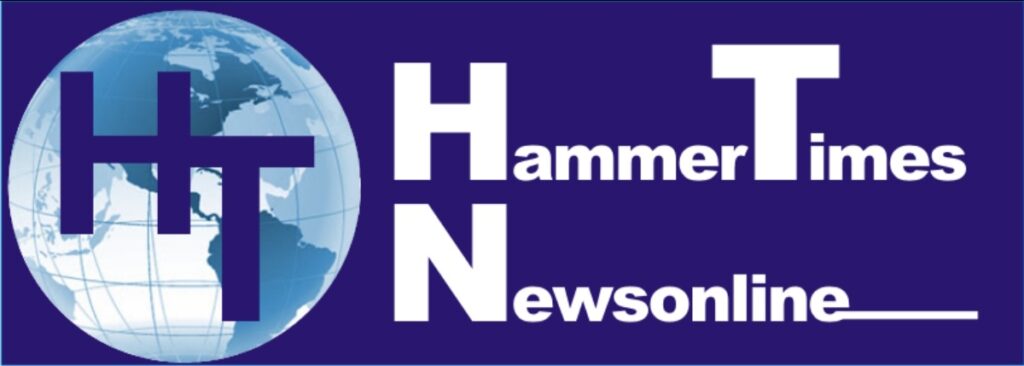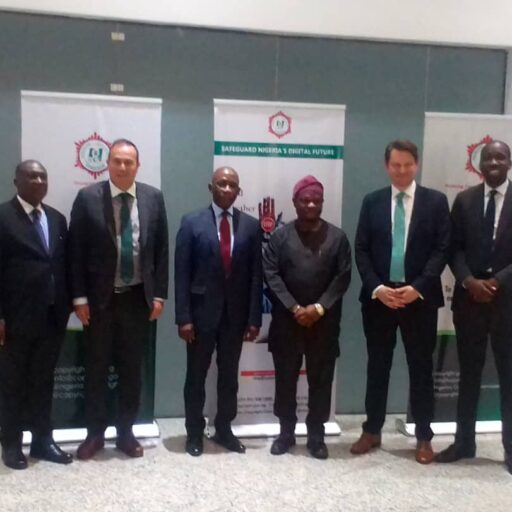By Priscilla Osaje
Dr John Asein, Director-General, Nigerian Copyright Commission (NCC) has called on industry stakeholders to unite and protect Nigeria’s digital space against copyright infringement, criminality and economic sabotage.
Asein made the call at a meeting of stakeholders aimed at developing strategies and tools to address online copyright piracy in Nigeria on Tuesday in Abuja.
The News Agency of Nigeria (NAN) reports that the initiative is part of the ‘Development Agenda Programme of the World Intellectual Property’ Organisation(WIPO).
The initiative links intellectual property with the broader goals of sustainable development in member states.
According to Adein, digital technologies have unlocked tremendous opportunities for the creative and innovation sector by the introduction of serious challenges of ‘online piracy’.
The NCC boss noted that sites continue to emerge rapidly with statistics indicating a 6.7 per cent in user visits.
“A significant percentage of these users are students aged between 18 and 24 with social media and messaging platforms becoming major gateway of accusing pirated contents.
“No industry is immune, the most affected sectors include television, 43. 6 per cent; publishing, 27.5 per cent; film, 12.9 per cent; music 7.0 per cent; and software, 6.2 per cent.
“Beyond mere statistics, the victims are no longer foreign right owners and many Nigerians in these sectors have also been bruised and creative enterprises ruined,” he said.
Asein further said that online piracy threatened the livelihoods of individual creator, businesses, and linked to other financial crimes, internet fraud, national security threats and other serious criminal activities.
He said the users might be enticed by the promise of free content, behind the scenes and organised criminal networks driving these operation.
“This is why it is imperative to develop and deploy the right strategies and tools for effective management, protection, control and enforcement of copyright in the digital environment.
“Although this project is scheduled to run for 36 months, NCC is using the opportunity to boost its ongoing campaign against online piracy and the broader national strategy to protect Nigeria’s digital market and creative economy.
“The commission will give attention to public education and awareness, capacity building for officials, including judges and persecutors, investment on modern tools such as we crawlers to detect illegal content.
“Others are strong inter-agency collaboration for rapid response to complaints,
industry- led initiative to develop appropriate business solutions and sustained enforcement through timely takedowns and effective site-blocking,” he added.
The NCC DG said Nigeria has a modern Copyright Act that enabled the takedown of infringing materials and blocking of offending websites.
According to him, the act provides for the use of technological protection measures and to support the application of digital rights management systems with safeguards to maintain their integrity.
“These provisions underscore the need for inter-agency cooperation, stakeholder vigilance and active citizen participation.
“Experiences from other regions have shown that collaboration particularly through site and intellectual property blocking could reduce online piracy by 70-90 percent.
“In the long run, this approach is more cost-effective and sustainable, especially when it is well- coordinated, inclusive and consistent,” he noted.
Asein urged stakeholders, government agencies, ISPs, telecom operators and industry leaders to stand together as frontline enforcement partners to protect Nigeria’s creative industries and digital future.
He called on stakeholders to stand against criminality, economic sabotage, copyright theft and essential threat facing Nigeria’s creative economy and millions of livelihoods it sustained.
Also speaking, Dr Tobias Bednarz of WIPO said the three-year-long project had a few countries who wanted to participate in it but only four countries, Ghana, Kenya, Nigeria, and South Africa were chosen.
According to him, they have a substantial budget of 500,000 francs for these three years, and the idea is to fulfill some of the developments and the recommendations.
“Africa has a very vibrant cultural industry but because of the levels of online piracy that we are seeing across the continent, it is difficult for copyright in the digital environment to fulfill the benefits that it holds.
“So to take full advantage of the digital economy, we really need to do something to stop online piracy.
“The objective of our project is to assist the country in addressing online copyright enforcement more effectively than they have done in the past and we hope to have specific outcomes.
“This year, we are able to enhance the legislative and infrastructural frameworks in those four countries to better address online copyright infringement,” he said.
Bedbarz said that WIPO aimed to improve the skills and knowledge of people who will then run such tools as the IP offices, the telecommunication agencies, law enforcement, and other officials in relation to online copyright enforcement.
Mr Micheal Akpan, an IP expert, said that sometimes piracy would have some kind of cultural elements that depended on environmental influence.
Akpan, the Project National Consultant, who spoke on the ‘online copyright piracy in Nigeria, trend and challenges of control’, emphasised on the trends of online piracy in Nigeria.
He said that piracy was a global phenomenon with far-reaching consequences that posed significant threats to the creative sector and also undermined the national economy.
According to him, piracy in Nigeria predates the digital age because before now, piracy took traditional forms, such as copying, and distributing creative contents through paper-based works like books, CDs and DVDs.
“In the online environment, it has become more disruptive because of the architecture of the internet, which trans-border affords unique opportunities for people to distribute and access contents.
“Due to its anonymity of use, some elements can hide behind pseudonyms to perpetrate evil of piracy, so the internet environment has scaled up the destructive nature of piracy.
“The economic rights of creators are defined in a way that they are equally applicable in the online environment such as copy of work which includes digital copies.
“NCC has created new rights of making communication available to the public neither by wire or wireless means.
“NCC pays directly to block or disable access to any content, link, website hosted on a system or network, which it reasonably believes to infringe copyright under the act,” he said.
He added that NCC without order from court would be able to implement, without obtaining a preliminary order of the court to block any online piracy, which is unique to the commission.
“Creators are unable to access funding for production, because of the fear that any funds advanced or low-facility advanced to creators might be affected.
“This is the challenge Nigeria is having in recent times that also affects the capacity to collaterise creative works,” he added. (NAN)











